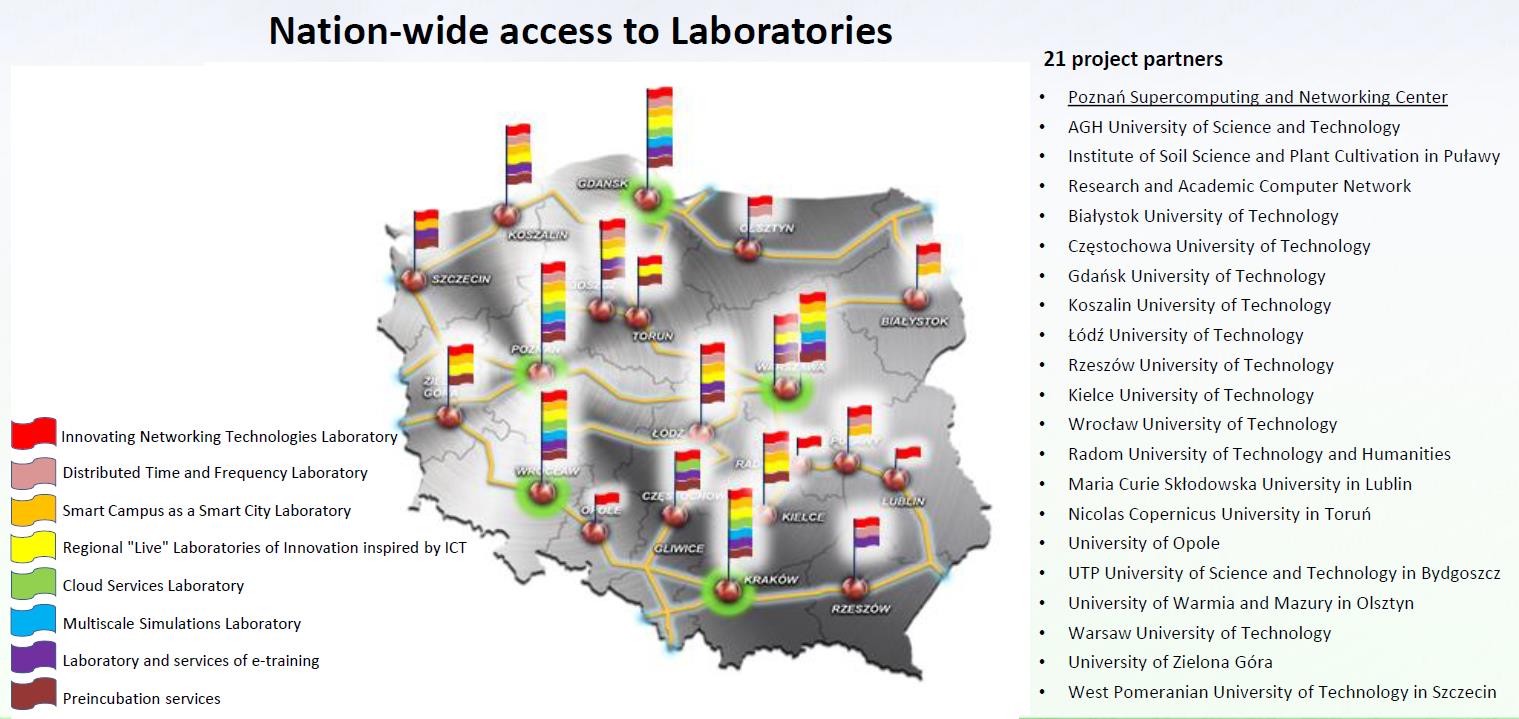The PIONIER-LAB project will buy fibre-optic network and research equipment to build better cooperation between Poland’s laboratories. The aim is to accelerate innovation and develop links between researchers and industry to help commercialise scientific discoveries.
PIONIER-LAB: boosting Poland’s research capacity and connecting academia and industry
- 11 May 2020
The equipment will be installed in eight lots of laboratories, according to the eight fields of research the 21 project partners have identified as priorities. The resulting research platform will be available to entrepreneurs and organisations involved in scientific research and development.
The project builds on the Polish National Fibre Optic Research Network (Pionier), a dedicated online academic network established in 2000 between Polish and foreign research centres. Currently, about 450 Polish research and development bodies and many commercial clients use Pionier.
Wide-ranging competences
The eight research laboratories to be developed are:
Laboratory of innovative network technologies, to conduct research into ICT networks and develop faster, more secure and reliable data transmission; Distributed time and frequency laboratory to give industry and researchers access to atomic clocks; Smart city laboratory to test technologies for making cities ‘smarter’; Regional ‘living’ innovation laboratory inspired by ICT, for conducting research into learning, teaching and assessment; Cloud services laboratory for research into data-storage infrastructure; Multi-scale simulation laboratory, where high-performance computing will be used for large-scale simulations, to model things like the spread of viruses; Laboratory and e-training services, to study the effectiveness of e-learning; Pre-incubation laboratories, which will serve as a central service point for external users to access the infrastructure.The bulk of the project’s costs, 76 %, will be dedicated to the laboratory of innovative network technologies.
The two laboratories dedicated to large-scale simulations and e-learning are particularly relevant given the COVID-19 pandemic. All laboratories, but particularly the first listed, will focus on applied science, thereby ensuring practical applications for the research results.
Addressing shortcomings
Currently, Poland’s research environment faces three main shortcomings which the project aims to address: restricted access and not enough specialised research equipment and infrastructure; poor cooperation between industry and research centres; and a lack of services provided by existing national research bodies.
The laboratories are intended for use by the research and development units forming part of the urban academic networks, and by foreign entities. By fostering cooperation with the pan-European GÉANT research and education network, and the Global Lambda Integrated Facility initiative the project will have both European and global reach.
Aiming high
The project aims to produce more academic research and to ensure closer cooperation between industry and academia, leading to greater market uptake of research results.
Concretely, the beneficiary – the Poznań Supercomputing and Networking Center, affiliated to the Institute of Bioorganic Chemistry and acting on behalf of a consortium of 21 Polish research institutes – expects the project’s annual results to include the filing of 21 patents, publication of 84 scientific papers, 342 PhD candidates using the facilities, and the creation of five spin-off companies.
Telecommunications company ADVA Optical Networking SE, and networking product companies Juniper Networks and Arista Networks, will donate equipment, software and expertise worth EUR 32 million to help set up the laboratory of innovative network technologies, in exchange for preferential access to the facilities. This will help to ensure that the laboratories are used to the fullest possible extent.
A promotion and sales office will create awareness of the facilities and encourage their use by the education, science and business sectors. This will include publishing advertisements, setting up websites and participation in events. A central repository will be created for all documentation produced as a result of the project.
Total investment and EU funding
Total investment for the project PIONIER-LAB - National Platform for Integration of Research
Infrastructures for Innovation Ecosystem” is EUR 122 127 142, with the EU’s European Regional Development Fund contributing EUR 71 074 361 through the “Smart Growth” Operational Programme for the 2014-2020 programming period. The investment falls under the priority “Enhancing the links between public research, business and the needs of the economy by investing in strategic public R&D infrastructure and research programmes with the highest potential for the Polish economy”.

